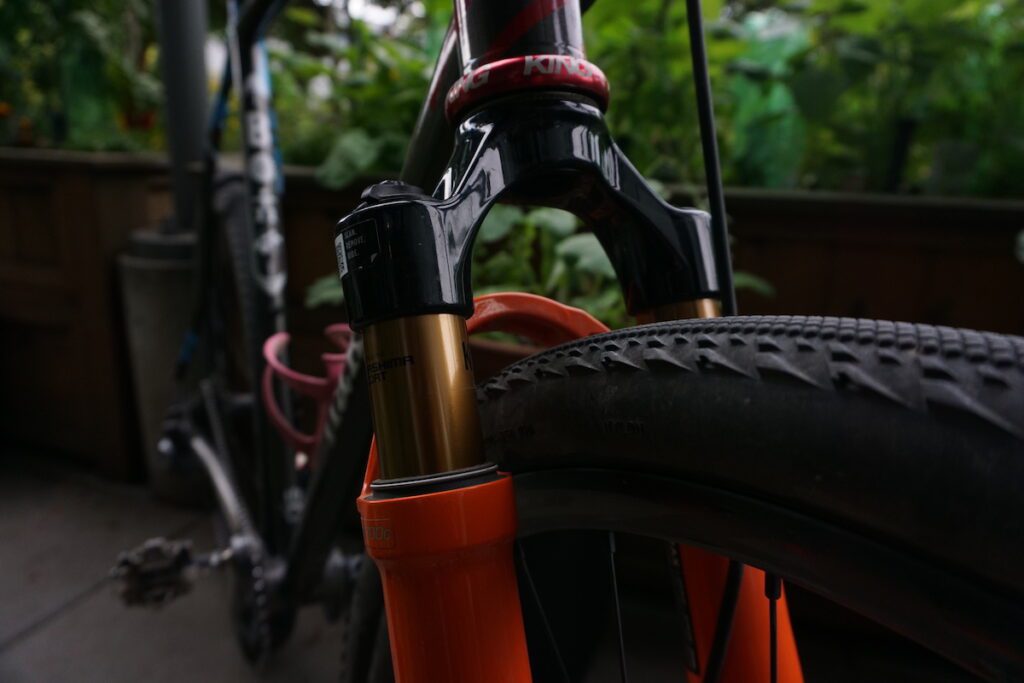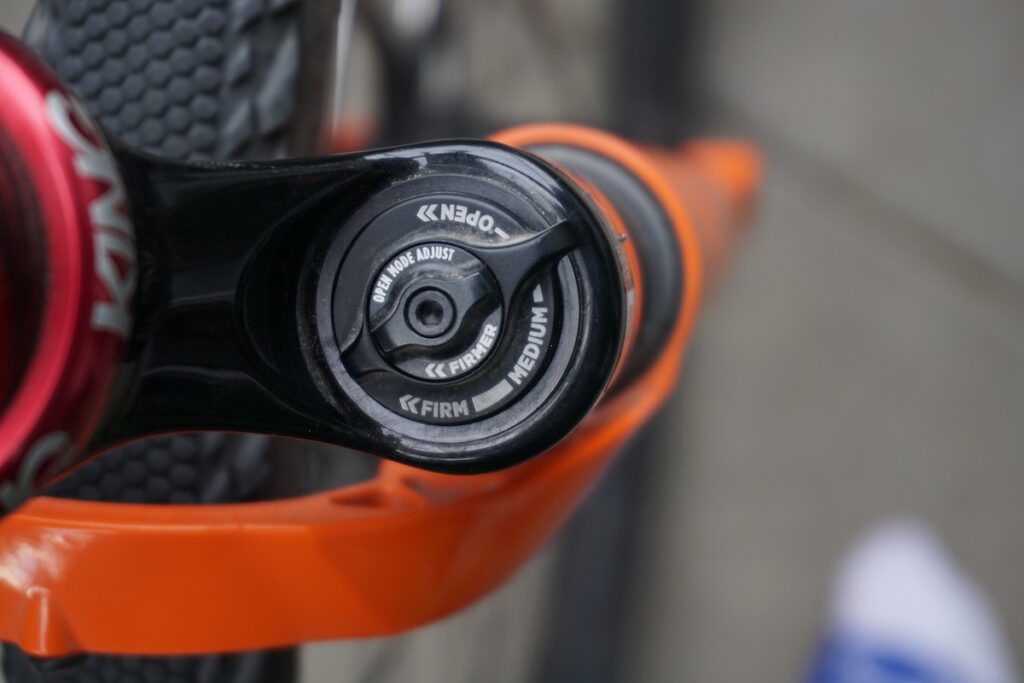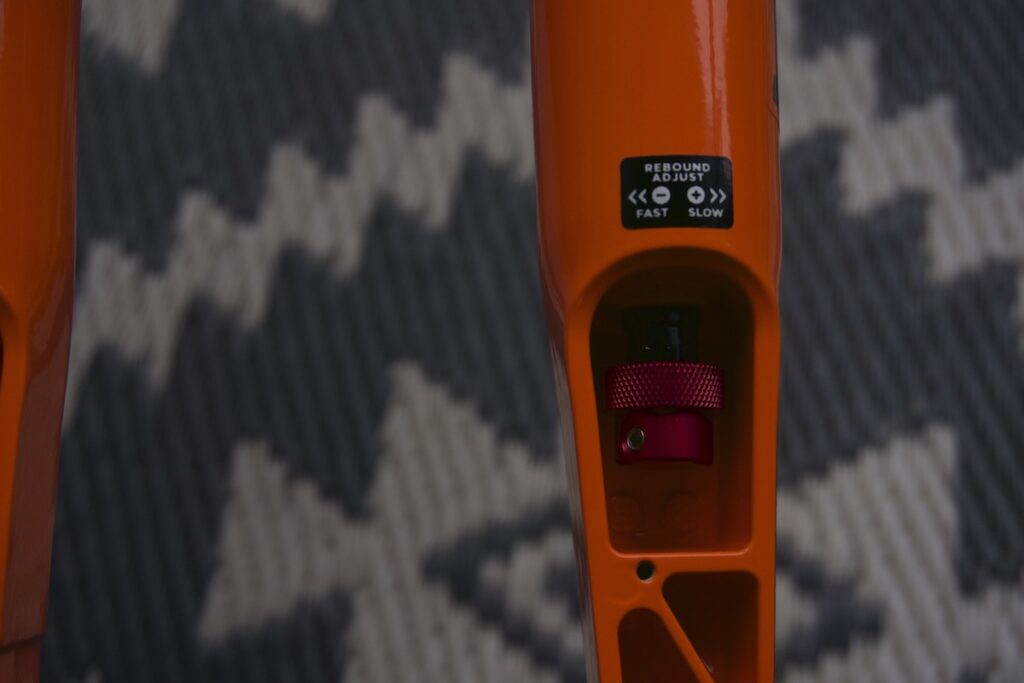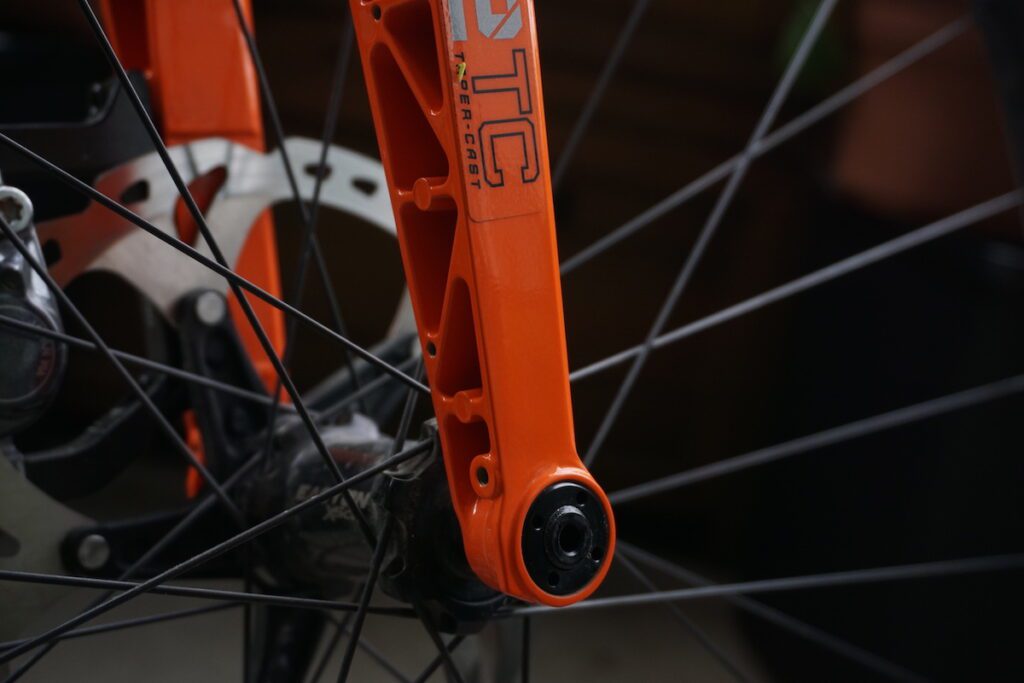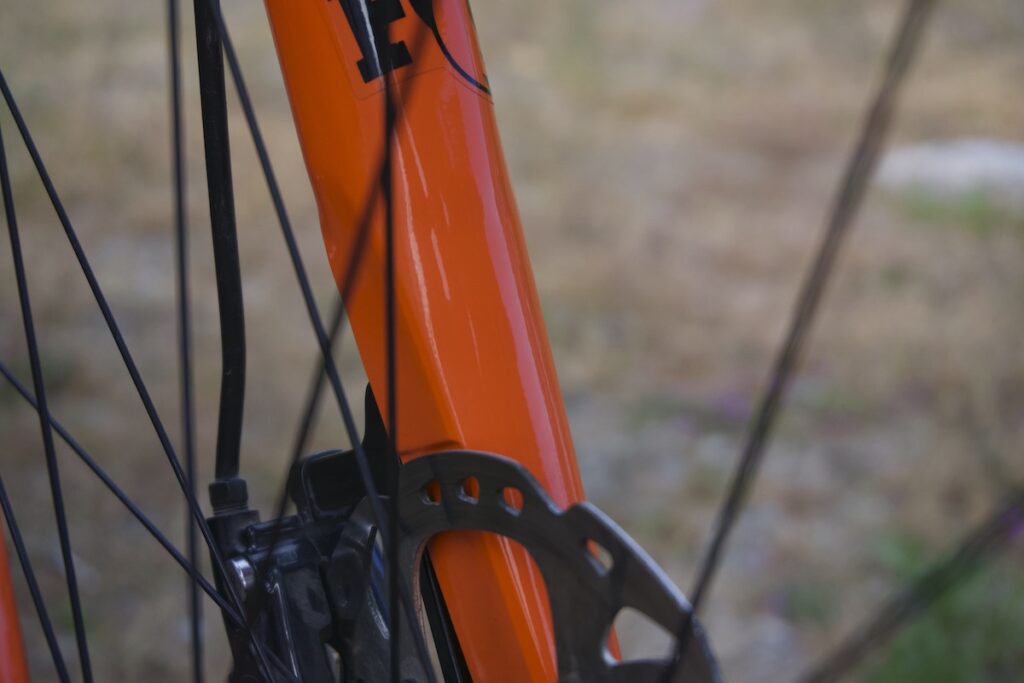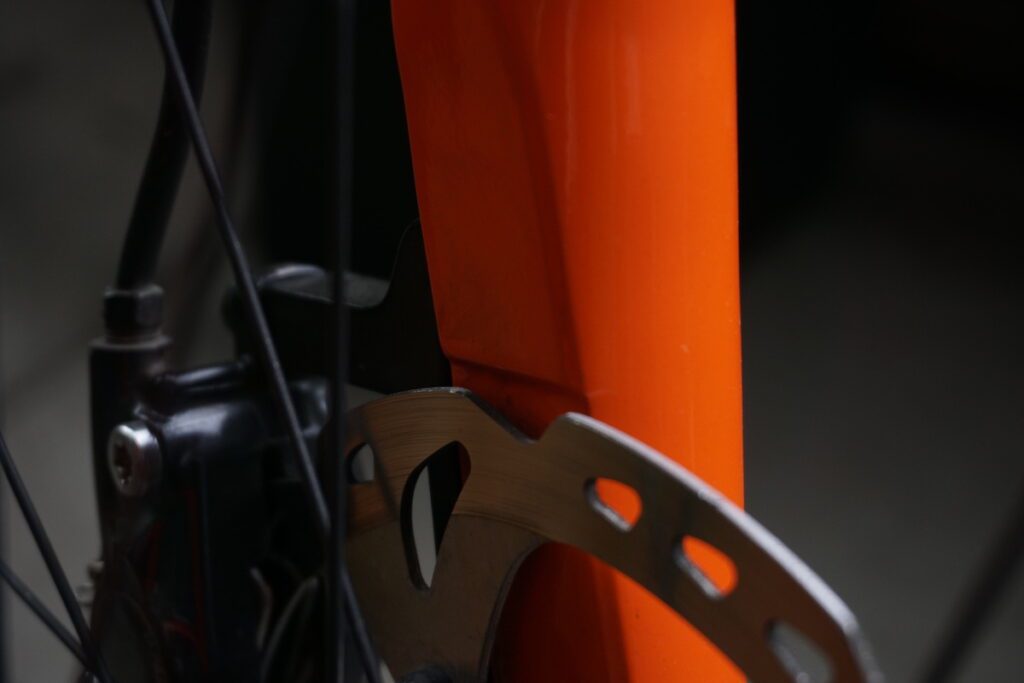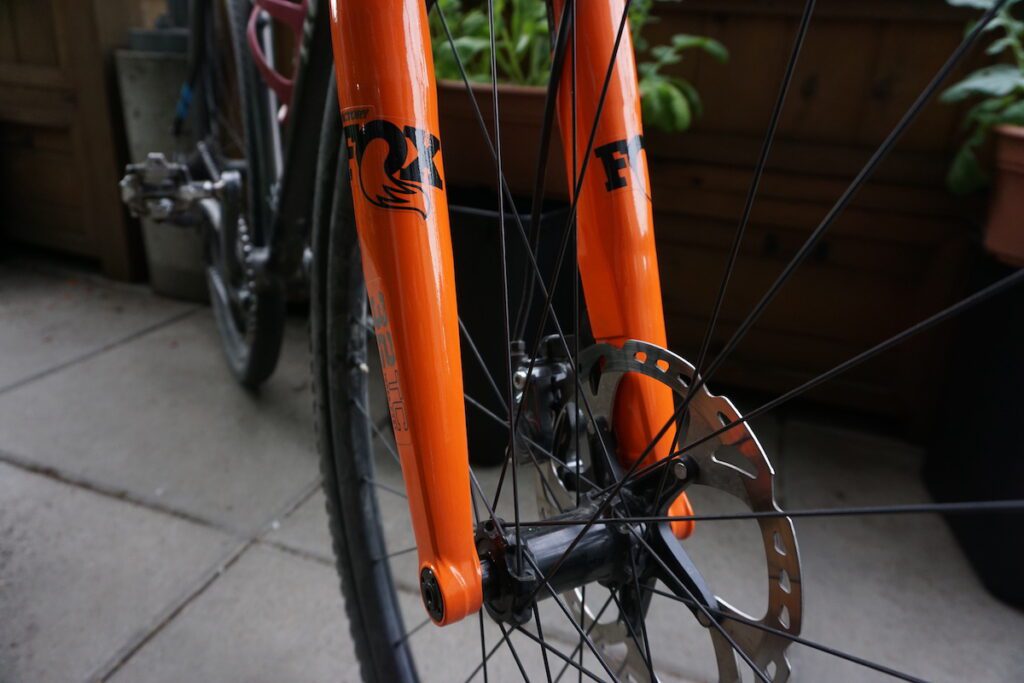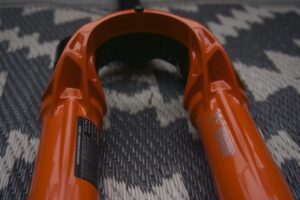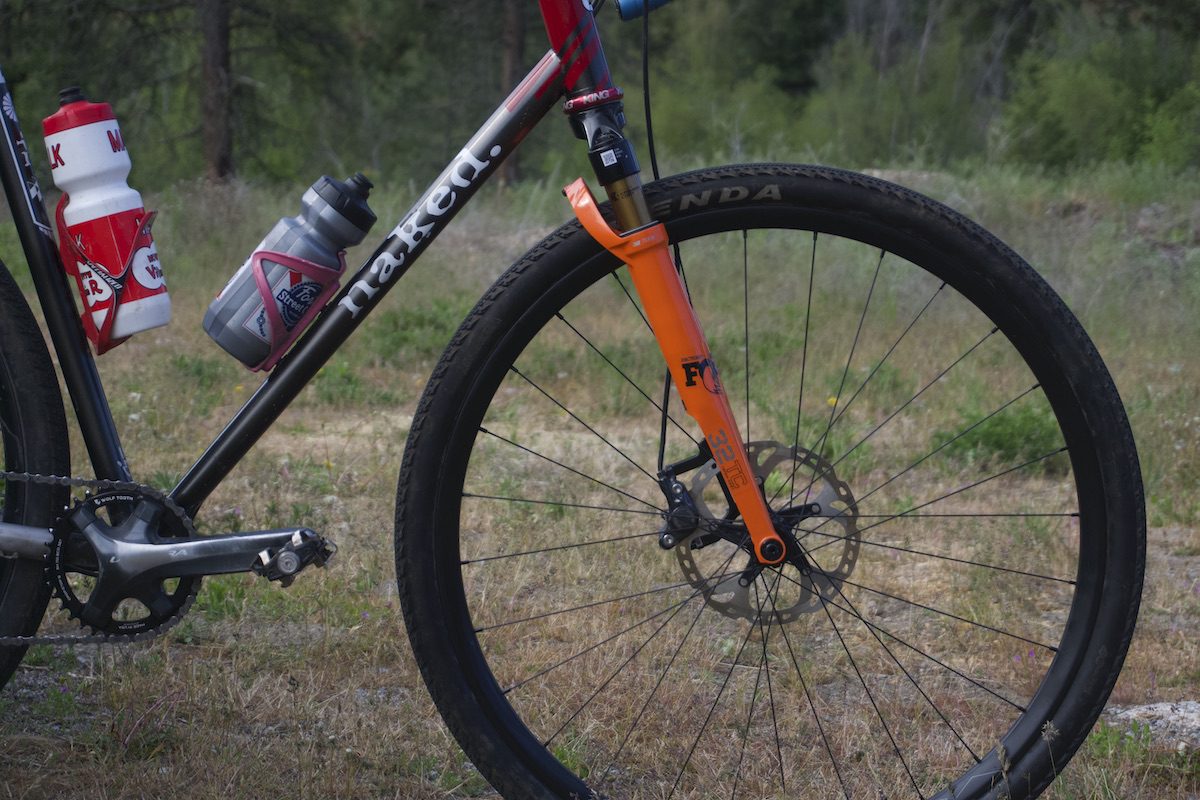Review: Is Fox 32 TC the suspension you didn’t know you needed
New gravel fork is faster, more comfortable, and adds more control off tarmac
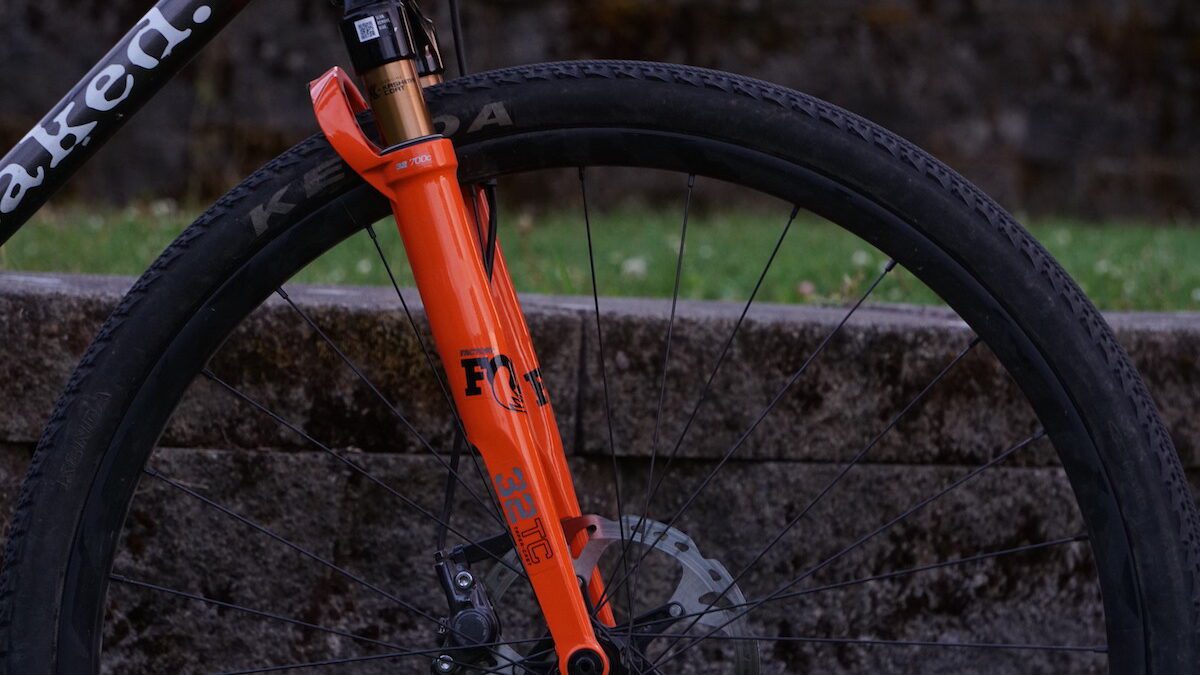
Whenever a new bit of gear is introduced for gravel – and especially when that gear even vaguely resembles a mountain bike component – people tend to get up in arms. It’s “not necessary” or it is “just ’90s mountain biking” get thrown around immediately.
Fox’s new 32 Taper-Cast – in borrowing heavily from the XC-focused 32 Step-Cast – is the perfect target for such ire. It might also be the best thing to happen to gravel since high-volume tires. Sure, it’s not necessary to ride gravel. But the amount of control, comfort and speed it can add to your riding is amazing. There are downsides – it’s not light and it’s not inexpensive – but the upsides offer way more to gravel riding than, to be honest, I was expecting.
Fox 32 Taper-Cast: Features
Fox offers the Taper-Cast in two travel lengths, 40mm or 50mm. There are also two different dampers, depending on what level of 32 TC. The Fit4 damper, with three positions allowing for Open, Medium or a basically locked-out Firm mode, comes on the Factory and Performance Elite forks while the Performance line comes with Fox’s Grip damper.
Unlike Fox’ previous gravel fork, the AX, the 32 Taper Cast is custom-tuned to the shorter travel design. All versions of the TC use the same drop-crown profile and a reverse arch improve downtube clearance. It can use 160mm or 180mm flat-mount dib brake rotors. Several features, like integrated fender mounts and lower-leg air and oil bypass channels, carry over from Fox’ highly regarded mountain bike suspension line.
There’s clearance for 50cc tires (700cc. The fork isn’t compatible with 650b wheels), options for 45 or 50-mm offset and has an axle-to-crown measurement of 435.5mm – 445.5mm.
The fork has a claimed weight of 1,226 grams. This makes it, unsurprisingly, Fox’s lightest fork ever. But it’s still not exactly light compared to, say, a rigid fork.
Fox 32 Taper Cast Factory in the wild
Over the past several months, I’ve put the 32TC through all kinds of gravel, tarmac and occasional singletrack riding. As mentioned, I wasn’t sold on the concept of gravel suspension when I started. That quickly changed when I realized how much the cute little baby shocks, with just 40 mm of travel, could change my riding.
Descending
The performance of Fox’s new gravel fork can be separated into expected benefits and unexpected benefits. Obviously, it makes going downhill easier. It doesn’t come close to turning chunky gravel into velvety smooth riding, but I was impressed by how much of a difference 40mm could make. It takes the edge off of bumps and gives you an extra half-second to respond to larger bumps. On longer descents and longer rides, it absolutely helped reduce fatigue in my hands, arms and shoulders.
Less expected were the impressive improvements in control while riding smoother gravel and while climbing.
Traction and control
The benefits of the 32 TC extend well beyond really chunky gravel. Even on smooth, multi-use paths, the little fork adds significant control. It smooths out road chatter and provides way more grip for the front wheel. It’s easy to feel the difference between the front wheel gripping to the ground and the way the back wheel will chatter or skip through the same corner.
With the TC fork, you can keep your weight forward and let the back wheel drift a little knowing you’re still in control. Without the shock, both wheels are hunting for traction. The result is you can comfortably corner faster. This may all seem immediately obvious to anyone who has spent time on a hardtail mountain bike and I’m not sure why it took riding the TC for me to realize the same logic would apply so well to gravel.
Climbing
A heavier fork makes climbing easier? Well, on rough surfaces, yes. On pavement, a rigid fork is still faster than a locked-out suspension fork. But any time that the road is rough enough that you have to start picking your line, or even considering where you’re going. It lets you pick a line for your back wheel without your front wheel bouncing or deflecting off rocks as much. It requires less core strength to hover over the bars and less attention.
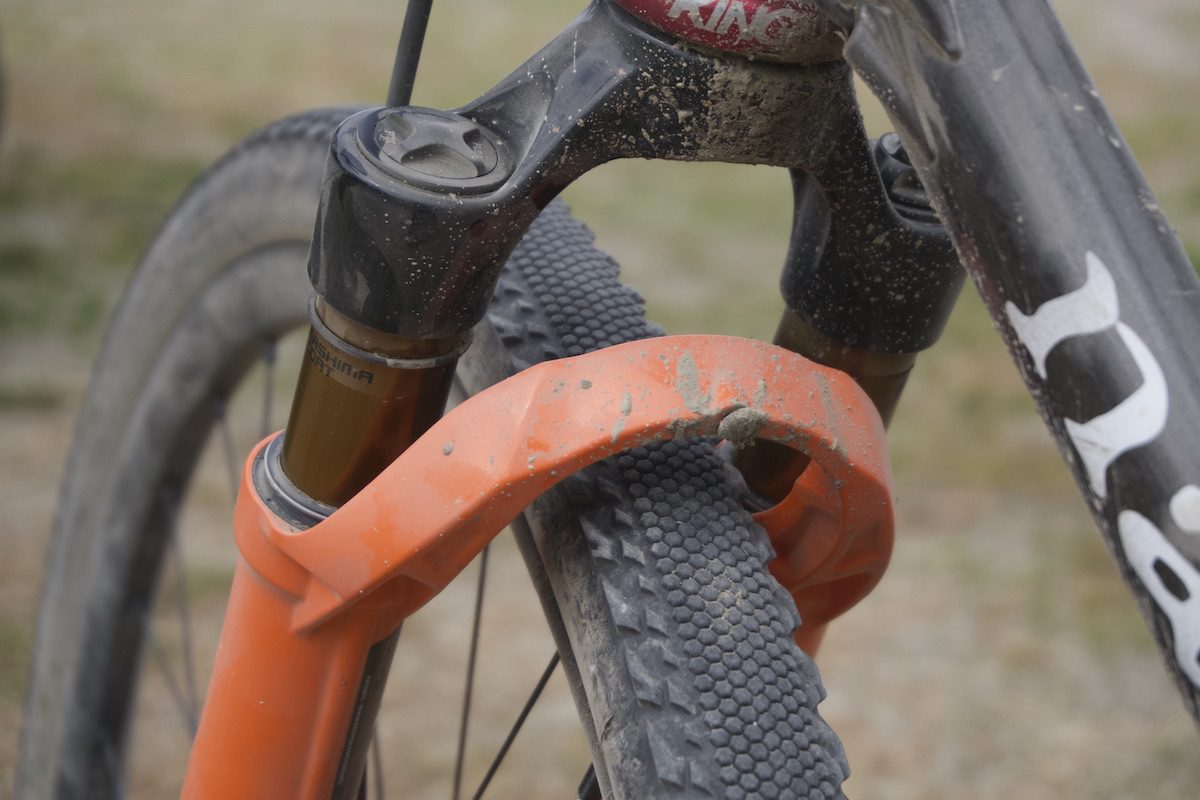
Fatigue and pack riding
Fatigue is possible the biggest benefit. Riding out on a long, bumpy section of the KVR outside Summerland I was riding side-by-side with a much stronger rider. As we bounced along, I noticed he was adjusting his hands on the bars way more than I was. As were the other riders in the group. I also realized I had far less of the usual “hand buzz” than I normally would that far into a ride. I’m by no means promising a fork will turn you into a pro overnight – the guy did eventually drop me when my legs gave up – but I’m convinced it let me hold on a little longer than I might otherwise have held on riding a rigid fork.
Racing gravel is a whole different thing, and not something I’ve done a ton of. But I did get a sense of how the fork would help in pack riding while sitting second wheel on some faster sections of the KVR on the same ride. A slight rail-grade downhill kept us flying along at a reasonably fast clip. But, this being a more remote section of the trail, there were frequent rocks scattered on the trail. The fork make it much more comfortable to sit close on the wheel of the rider in front of me without being as worried about what was coming up on the path ahead. It still is only suspension for the front wheel, so you have to watch out for rear flats, but the extra reaction time to swerve or unweight the rear wheel was appreciated.
The downsides
The catch, and why not everyone will be sold on any form of gravel suspension, is the weight. Installing the 32 Taper Cast required taking off the carbon fork and steerer tube that were on my bike. Just holding both, there was an obvious difference in weight between the two. The ‘light’ suspension fork is still 1,226 grams. For contrast, something similarly burly, like Whisky’s No.9 MCX (MonsterCross) fork is just 540 grams. Whether that difference is worth it or not will depend on where, and how you ride.
I also briefly had a 180-mm rotor installed on the 32 TC (after an error ordering a post-mount-to-flat-mount adapter. Which was, to be honest, kind of hard to find). With that rotor, there would be a little disc rub from the fork flexing when really standing and putting the power down. That’s the only time I noticed any flex, and any rub disappeared when I put the 160-mm rotor on.

Review: Fox 32 Taper-Cast
I’ll admit I came into this review expecting a fight. I’ve been known to wax poetic (or maybe it’s just whining) about when “gravel riding” used to just mean abusing a road bike or, if you were lucky, a ‘cross bike on unpaved back roads. But the performance of Fox’ 32 Taper Cast makes it a pretty easy win for the cute little mini-shocks.
Are gravel suspension forks necessary? No. You can still ride gravel on whatever you want. That includes 23mm tires, if you still really like changing flats. But the Taper-Cast isn’t “just a 90s mountain bike” fork. I remember the earlier days of mtb suspension (and still have a used Indy if you want an “authentic” experience) and this is not that. This is a modern fork engineered for short travel, and comes with all the associated advantages. More control, more speed and more comfort (for more cost). If any of those appeal to you, you can be sure the TC will deliver. If not, keep riding what you’ve got (and, you know, complain about it on the internet).
So the Taper Cast is not necessary, it’s not lighter than a rigid fork, and it’s not inexpensive.
But is it more comfortable? Yes. Is it faster? Yes. It’s faster downhill, on rough uphills uphill, on any corner: you just have more control. And more control means more speed. That will – or should – be true for any suspension fork. But Fox does a fantastic job with the TC 32. There are limited gravel suspension options still. But the new 32 Taper Cast isn’t a developing product. It emerges fully formed and ready for anything gravel can throw at it.
Fox 32 Taper Cast ranges from $1,039 for the Performance model up to $1,279 for the Factory model with Fox orange and Kashima-coated stanchions.
